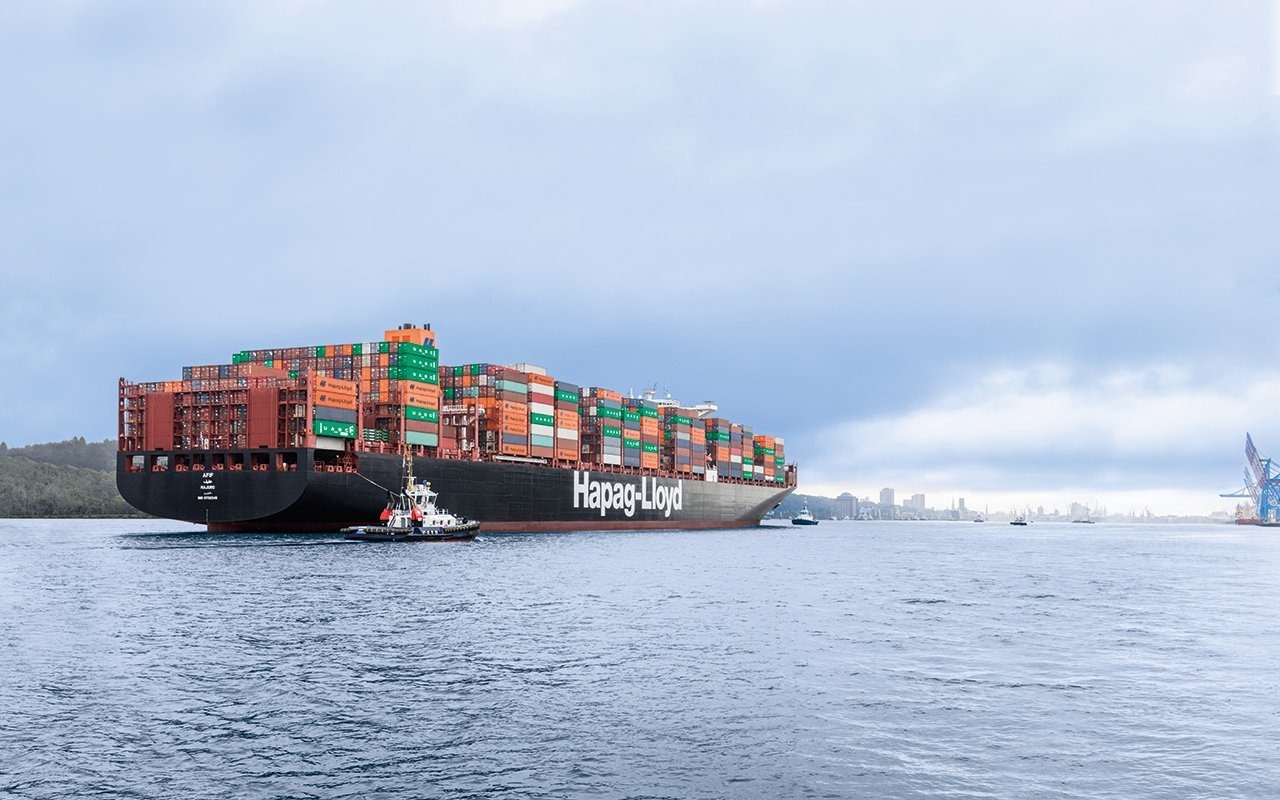
In 2022, the United States adopted a law giving the Federal Maritime Commission greater powers in the shipping sector. The commission is going to need more manpower, however, if it wants to make use of its new powers.
"This act revises requirements governing ocean shipping to increase the authority of the Federal Maritime Commission (FMC) to promote the growth and development of U.S. exports through an ocean transportation system that is competitive, efficient, and economical." This is the prelude to the Ocean Shipping Reform Act 2022 (OSRA), which came into force in the United States last year, after several months of heavy disruption in logistics chains and unprecedented congestion in US ports. The new law gives the Federal Maritime Commission greater powers, imposes new obligations on shipping companies and bans them from using certain practices.
Following the virtual paralysis of activity engendered by the start of the Covid-19 pandemic, economic activity resumed with unexpected vigour, making it difficult to get access to shipping capacity and equipment. The result was that ocean freight rates increased on an unprecedented scale. The American government, which was alerted to the situation by discontented importers and exporters, decided to take a closer look at the shipping companies, who were suspected at the time of exploiting the crisis at the expense of American shippers. The situation was particularly resented by the American authorities because the shipping companies concerned were essentially foreign. The FMC's investigations found no anti-competitive behaviour, but the government did not want to let matters rest there.
Today, the FMC has been given wider powers by the Biden administration and the Department of Justice and has clearly set itself up as a state and supra-national counterweight to foreign shipping companies, particularly Chinese ones.
1/ Geopolitical shift
Although the Covid crisis and the disruption it engendered served as a trigger, the roots of the action taken by the United States went deeper.
- WTO about-turn
In recent years, the World Trade Organisation (WTO) has become more political, increasingly prioritising the interests of emerging and developing countries and, by the same token, distancing itself from its role as a simple promoter of international free trade, which, historically, meant, above all, serving the interests of the United States.
Two decades after China joined the WTO, it has become clear that the situation has changed. China has become the world's leading trading nation in volume terms. In an article published in 2021, Francois Godemont, Asia counsellor at the Institut Montaigne, questioned the idea that China was the locomotive taking the world economy forward. "This image is not the right one," he said. "China exports more than it imports, attracting world GDP creation towards itself rather than stimulating it elsewhere. China is, above all, its own locomotive. It is not pulling economic growth in the rest of the world behind it but is rather its main component."
- US economic patriotism
With a dash of opportunism, the United States took advantage of the Covid crisis to reorganise access to its market through adoption of a policy which was more restrictive and more intrusive. It had no qualms about using economic patriotism to respond to the uninhibited trade offensive launched by China. Its response was initially confined to the economic sphere but quickly spread into geopolitics, as recent tensions between the two superpowers have demonstrated.
We saw a similar drive to control world trade on the part of the US administration after the 11 September terrorist attacks. Introduced supposedly on security grounds, the measures taken at the time to monitor the movement of goods allowed the US to capture more commercial data about goods coming into and out of the country.
It is interesting to note in this respect how successive American administrations took the same approach. Consideration started to be given to the OSRA 2022 legislation under the Trump administration and work on it continued following the election of Joe Biden.
- The EU struggles to find its voice
Could a protectionist shipping act be envisaged in the European Union (EU)? For a long time, the EU's DNA meant that it strongly supported free trade on the basis of a political doctrine which, essentially, prohibited state intervention in the international business dealings of the private sector. Today, the EU is starting little by little to change its position on sovereignty in line with changes in world geography. It is nevertheless struggling to identify its supranational strategic interests and organise itself as a multilateral bloc on an equal footing with China and the United States. Recent differences between France and Germany regarding relations with China are a telling demonstration of this.
In this situation, it is difficult for EU competition commissioner Margrethe Vestager to push for the creation of a European FMC, even if the idea has not been completely ruled out. Faced, like their American counterparts, with soaring prices and heavy disruption of shipping services, European shippers and forwarders favour of the idea. The EU competition authorities have close links with the FMC and its commissioner, Rebecca Dye. At a time when friend-shoring is very much in fashion, the idea of a European "Shipping Act" could fall on fertile ground.
2/ What is the purpose of the US Shipping act?
The fundamental purpose of the original shipping act was to ensure that American exporters has a wide-ranging, reliable, regular and cheap transport system - a principle which operators like Maersk respected to the letter for years. Its respect for the law worked in favour of the Danish company when it sought to take over US operator Sealand in 1999. Little by little this system spread until it applied to all American shippers, including importers who had a say in the choice of the main transport mode used to carry their goods. This covers all the goods imported by the big American retailers.
Access to the US market is not totally open. To have the right to trade with the United States, shipping "intermediaries" must have a bond, which is to say an authorisation provided by the FMC. These bonds are renewed from time to time…or they are not (The list can be consulted on the FMC's website).
Cargo movements must be filed via service contracts, which remain in force for a given period, generally a year. Goods need to be described according to precise, detailed FMC-approved criteria before they are loaded aboard ship.
In the 2022 version of the shipping act, these rules have been made more strict, mainly by strengthening shippers' negotiating rights with shipping companies and terminal and container chassis operators. Four new provisions have been introduced to this end:
- The use of retaliatory measures by shipping companies against shippers are outlawed by the introduction of documented complaints procedures.
- Shipping companies are obliged to give a detailed, official list of detention and demurrage fees, which shippers can subsequently try to renegotiate.
- Shipping companies must not refuse to load any goods when there is space for them aboard their ships.
- The FMC is recognised as the sole legal and competent authority to set rules regarding the acceptability of service contracts, which means that it decides what can and cannot come into or out of American territory (see amendment 9 to section 3 on service contracts.
The importance of this last point is often underestimated by Europeans. This amendment gives the FMC the absolute right to decide what can enter and leave the United States. It is not a customs-style measure based on the type of goods concerned, the trading of which may be prohibited or subject to conditions. It is a unilateral political right, which cannot be contested and which the FMC does not have to justify to third parties, American or otherwise.
While the new law was under study, commissioner Rebecca Dye, who was the main architect of this commercial, strategic and security-minded strengthening of US shipping policy, was able to carry out a thorough investigation to find out whether or not the shipping companies had colluded on rates in such a way as to explain why rates soared during the pandemic. The conclusions of her report are very clear. The answer was no! Indeed, the commissioner drew attention to the intense competition which existed between the shipping companies.
In a recent statement, however, Rebecca Dye cleverly qualified her position in this respect by calling on shipping company boards to appoint compliance officers in US ports, who would report directly to their chief executives regarding compliance with FMC regulations. More than just a one-stop contact, the compliance officer would be the legal guarantor of the foreign shipping company's compliance with FMC rules and would be funded by the shipping company itself. This move underlines the supranational character of the FMC, since the shipping companies concerned at 99% foreign. It also marks the limits of a system which is obliged in a certain sense to delegate its costs.
3/ Delicate human resources question
This call from the FMC is indicative of the shortage of human resources from which it suffers in carrying out its work of monitoring and checking respect for its policies. The additional powers the FMC has been given are commensurate with its size as an administrative body. Commercial operators were already complaining before the pandemic about the length of time it was taking to deal with service contract declarations. We consider that the FMC needs to recruit some 200 more people.
Many challenges await the FMC. Digitalisation should enable it to take a more predictive approach to the entry and departure of goods, according to the country's needs. On the other hand, the cyber risks posed by the handling of increasingly sensitive commercial data are becoming increasingly acute, which means that additional human resources are needed to deal with them. Also, if it wants to have credibility, the FMC needs to be able to deal with shippers' complaints in a reasonable time. Giving it additional powers, which it cannot physically exercise, would not make a lot of sense, therefore.
The other big risk confronting the FMC is the rise in B2C e-commerce. This will lead to trade becoming increasingly "parcelised", particularly for goods coming into the country. The arrival of the "international digital grocery store" as part of an international trading system which is already highly concentrated will generate a massive increase in the volume of data to be processed. Checks will become more difficult by virtue of the volumes involved and there will be a risk that the customs revenue will be lost. Business models based on big, global e-commerce platforms will almost inevitably lead to control systems being swamped, given that the data volumes will be impossible to handle without smart digital technology. If Europe wants to have a shipping act of its own, it will need to take account of this fundamental factor when it sets the specifications for it, even before it takes account of any political considerations.

Jérôme de Ricqlès
Shipping expert
Our latest articles
-
Subscriber 3 min 24/02/2026Lire l'article -
Hapag-Lloyd - Zim: a shipping deal with geostrategic implications
Lire l'article -
European road freight: the spot market is stalling
Lire l'article


